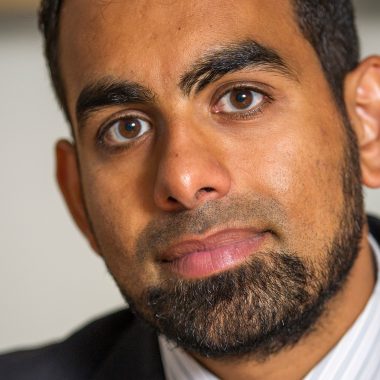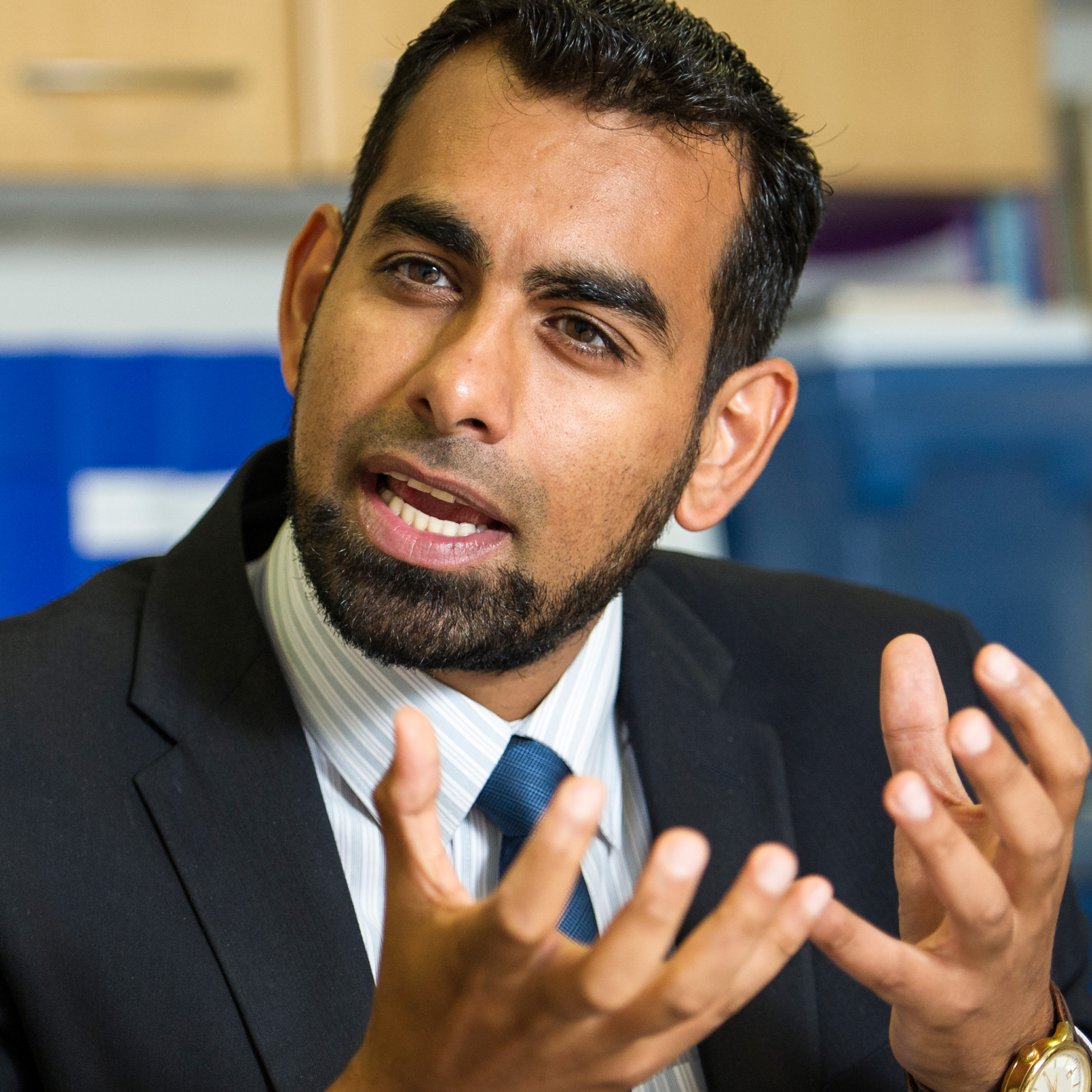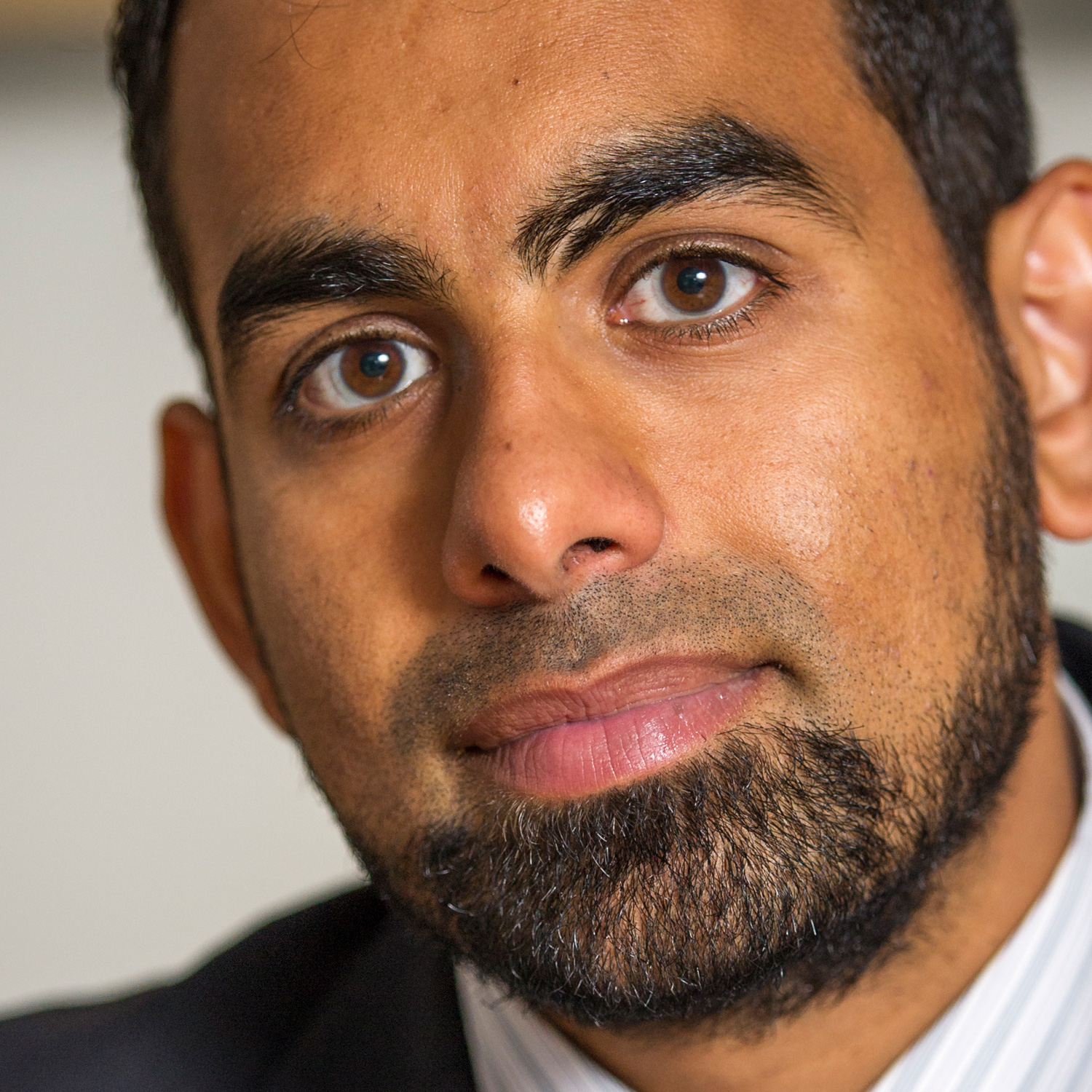‘The enthusiasm for overseas GP recruits is there’


dr anwar mohammed saqib square ed maynard 6
NHS England’s short-term solution to the GP recruitment crisis is to import 2,000 ready-made GPs from outside the UK. But if the scheme is to be successful when it is rolled out on a national scale, managers will need to call on the expertise of Dr Mohammed Saqib Anwar.
The calm and optimistic Leicester GP has a number of strings to his bow. He is a partner at The Croft Medical Centre in Leicester, diabetes lead for the Midlands and faculty chair at RCGP Leicester.
But it is in his role as an associate medical director for NHS England in the Central Midlands – a job he describes as ‘a real pleasure’ – that he is leading the drive to recruit GPs to Lincolnshire – the first of three pilot sites to bring over qualified GPs from countries in Europe, trained at a campus in Poland. While he’s aware the scheme ‘isn’t the answer to all problems’, he’s buoyed by the positive response from local GPs.
Pulse spoke to Dr Anwar about how the scheme will make the leap from pilot to national endeavour and what it will mean for general practice.
What problems with recruiting GPs from overseas have been highlighted by your experience with the pilot scheme?
If you put yourself in the position of an EU doctor, uprooting your family from a country where you have lived, trained and practised to go to live and work in another country – it is a big decision to make.
There is evidence to suggest that people who have grounded social connections in the area where they work are much more likely to remain in that area. For me that’s very important. Yes, it’s about making sure they’re adequately trained and have the necessary competencies, but also it’s about retention. How are we going to ensure they’re going to remain in the positions that we want and need them to fill?
Are you able to highlight any of the changes that are likely to be made when it is rolled out nationally?
One of the key lessons is that the amount of time required to conduct this process properly means dedicated support is required. Ensuring that for each of these doctors we provide not only the housing and financial solutions, and the training and practice solutions, but also everything else that relocation entails.
One thing we do know is that a central NHS England International Recruitment office is to be created. This will, in effect, run the scaled-up international recruitment operation.
Another important factor is the role of the induction and refresher scheme. We’ve realised that, before doctors enter the formal induction and refresher schemes, they need an initial induction period to bring them up to the required level. So all the recruits will benefit from this initial phase.
This is a welcome development because we know that, for doctors who have never worked in the system, that targeted programme will stand them in much better stead when they go on to the formal scheme and then into practice.
Will the training campus in Poland remain the only one or will more be set up?
It won’t be the only one. We ran it in Poland because a recruitment company we used had a training campus there. But under the new framework that is being agreed at the moment for international recruitment providers, it will be their job to identify potential overseas doctors and support them through the recruitment process. They could be based anywhere. The one we used happened to be a pan-European agency with a training campus in Poland, but they’re not going to be the only agency used in the programme.

dr anwar mohammed saqib square ed maynard 32
How have GP practices reacted to the expansion?
With any change there’s always apprehension at the outset. People are not entirely clear about what it is that they’re signing up to or what the quality of these doctors will be. But we found early on that once we’d had the first recruits and practices heard about the quality of doctors that were arriving to help fill vacancies, expressions of interest increased.
The feedback that we’ve had from the doctors, the practices and from patients has been wholly positive. And I’m hopeful that this positivity is something that can translate to areas up and down the country – there’s no reason why it shouldn’t.
How many expressions of interest have there been? Do you have a figure on that?
In Lincolnshire, we recruited 26 doctors to 13 or 14 practices, but because it was a pilot there was a cap on the numbers we were able to take on. Even in a very closed environment, we found after the early successes we had many more practices coming forward to say they would like to be part of it, and the practices that had taken on a doctor came back and requested more doctors.
So my experience has been that the enthusiasm from practices is there. And why wouldn’t it be? They’ve been struggling to recruit.
NHS England said the number of overseas GPs to be recruited could exceed 2,000. Is there any concern that there won’t be enough of a pool of GPs to satisfy national expressions of interest?
It’s very difficult to say whether or not the required numbers of doctors are actually out there. The early indications from partner recruitment agencies is that the numbers are there. Of course, the level of interest will be determined by the packages that we put in place for them.
I hope that we’ll be able to get somewhere near that target but it’s difficult to say before we know what the final process looks like. We’re not at that stage just yet.
Is the scheme’s expansion an admission that the Government’s target to ‘train and retain’ 5,000 GPs cannot be met?
We know that medical school places are expanding. We know that GP training is expanding. We know that we’re looking to improve the return to UK for GPs from abroad. But all of these are medium- to longer-term solutions.
What we’ve actually realised is that we need the doctors here and now, so the international recruitment programme is being developed as more of an immediate measure. It’s a step towards achieving those 5,000 additional doctors that are needed.
Should we expect recruitment from overseas to become the norm from now on?
From my perspective, international recruitment should continue to be a part of any solution to the GP workforce until we reach a stage where we’re actually able to train, recruit and retain our own doctors to the right positions.
The other area that I look at is GP training places. When we look at international recruitment, the focus has been on recruiting fully fledged GPs. But part of the solution might be recruiting doctors to those unfilled training positions that we know Health Education England has. I know that’s under consideration at the moment.
So yes, it’s nice to have fully fledged GPs that we then induct into the NHS, but actually when there’s a shortfall in the number of GP trainees here, that might be another area that international recruitment can feed into. So we could actually recruit to training positions rather just than practice placements.
Are you saying HEE is currently looking at recruiting GP trainees from abroad?
From my perspective that’s an area that I know is currently under consideration.
How far that consideration has gone I wouldn’t be able to say but it’s certainly an area that’s being looked at, and in my view rightly so.
Putting another of your hats on, can you say how successful the diabetes prevention programme has been so far in the Midlands?
In our area, we’ve so far received in excess of 8,200 referrals to the NHS Diabetes Prevention Programme. And that was at the end of August, so within a year we’re looking at that many referrals. Even if we look at it on a monthly basis alone, in August of this year we generated 1,128 referrals. That is actually around 160% of the monthly referral target that we originally set.
And on the seven-day access scheme, has there been much uptake of appointments at weekends in the Midlands?
The available evidence that I’ve seen is that, for routine appointments, seven-day access is not something that patients want. In terms of uptake of Sunday afternoon appointments for routine medical ailments, that’s not something that the evidence supports.
And at a practical level, at a level that is understood by evidence-based researchers, when you look at the reports that have emerged from many of the first-wave pilots, my understanding is that they do not indicate support for routine seven-day services.
That’s not to say seven-day primary care shouldn’t be available. But it’s the type of appointment that is being offered that probably needs looking at.
CV
Age
34
Education
• 2006
Graduated from the University of Manchester
Career
• 2011-present
GP partner at The Croft Medical Centre, Leicester
• 2012-2016
Medical secretary, Leicester, Leicestershire & Rutland LMC
• 2016-present
Associate medical director, NHS England Central Midlands
• 2016-present
Clinical lead for diabetes, NHS England Central Midlands
• 2017-present
Examiner, GMC Professional and Linguistics Assessment Board
Other interests
Cricket (watching and playing) and eating
Pulse October survey
Take our July 2025 survey to potentially win £1.000 worth of tokens










